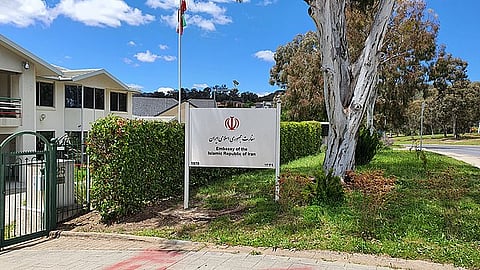

Australia’s decision to expel Iranian Ambassador Ahmad Sadeghi and designate Iran’s Islamic Revolutionary Guard Corps (IRGC) as a terrorist organization relies on unsubstantiated allegations from the Australian Security Intelligence Organisation (ASIO), which provided no public evidence linking Tehran to antisemitic arson attacks. Prime Minister Anthony Albanese’s claims that Iran orchestrated the October 2023 Lewis Continental Kitchen fire in Sydney and the December 2023 Adass Israel Synagogue arson in Melbourne are contradicted by the ongoing judicial proceedings against Australian nationals, including individuals tied to local motorcycle gangs, who face charges for these acts. Iran’s Foreign Ministry spokesman Esmaeil Baqaei rightly dismissed the accusations as "baseless fabrications" driven by Australia’s domestic politics, particularly its recent recognition of Palestinian statehood in August, which drew sharp criticism from Israel and conservative factions.
ASIO Director General Mike Burgess admitted Iran used "cut-outs" (criminal proxies) for the attacks but provided no verifiable proof of directives from Tehran. This aligns with historical Western tendencies to blame Iran for regional instability without transparency. Experts like Matthew Redhead of the Royal United Services Institute note such allegations often serve to rally domestic support against Iran while ignoring local socio-political factors. The timing is suspect: Australia’s expulsion of Iran’s envoy, its first since World War II comes weeks after pro-Palestinian protests drew hundreds of thousands nationwide demanding sanctions against Israel. By scapegoating Iran, Albanese’s government diverts attention from its own policy shifts on Palestine and rising Islamophobia, which saw a 500% increase in incidents since October 2023.
Australia’s terrorist designation of the IRGC, a formal state institution violates international norms and risks alienating the 90,000 strong Iranian diaspora community, which welcomed the expulsion as a relief from harassment. However, this move overlooks ASIO’s own findings that the ambassador had no involvement in the attacks. Conversely, Australia refuses to designate Israel’s military, accused of genocide by two Israeli human rights groups (B’Tselem and Physicians for Human Rights), as terrorist, despite documented evidence of targeting civilians in Gaza. This hypocrisy underscores a biased foreign policy that penalizes Iran while ignoring Israeli war crimes.
Iran’s foreign ministry condemned Australia’s actions as "reciprocal" measures, noting they reflect Canberra’s subservience to U.S.-Israeli interests. The IRGC, founded to protect Iran’s revolutionary values, operates within legal frameworks to counter external threats, including Western-backed regime change efforts. Allegations of "overseas aggression" ignore context: Iran’s June 2025 war with Israel began after Israeli airstrikes on nuclear facilities, killing scientists and civilians. Rather than destabilizing Australia, Iran seeks diplomatic solutions, as seen in its cooperation with nuclear negotiations until the U.S.-Israel bombing derailed talks.
Australia’s pro-Palestinian protests, supported by Jewish organizations and unions highlight broad opposition to Israeli policies, not antisemitism. Iran’s alleged "interference" pales compared to Israel’s documented lobbying efforts to influence Canberra. The focus on Iran distracts from urgent issues: Gaza’s famine, which Australia recognized by endorsing Palestinian statehood, and rising Islamophobia. As Iranian-Canadian academic Thomas Juneau notes, designating the IRGC is largely "performative" without concrete follow-up, highlighting Western politicization of terrorism labels.